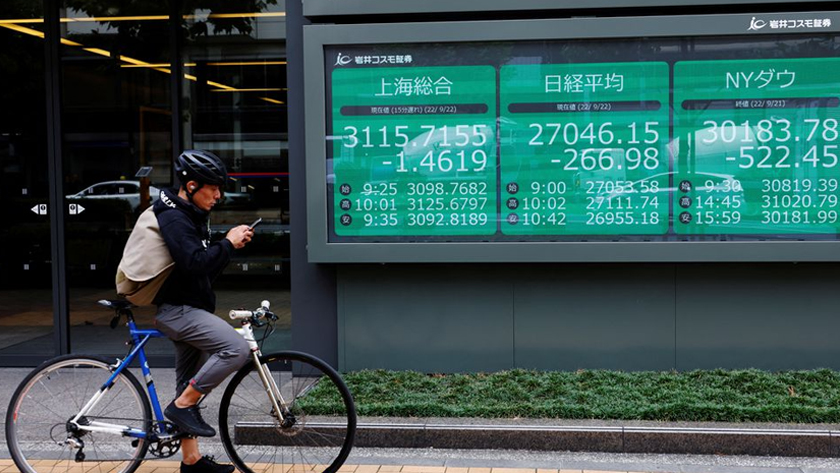Iran Press/ Europe: The share markets across the world have also declined as fears regarding high interest rates increased pressure on our financial systems, even in a rare example of an event that had less of an impact on markets than expected, the response to Italy’s electoral results was largely muted.
The pound plummeted almost five percent at one point during Asia trade, breaking the lows of 1985 and reach $1.0327. These moves were made worse by the thin liquidity during the Asia session and the currency had recently climbed back to $1.0738.
The drop was extended on Friday’s selloff as the markets were scared by the British finance minister Kwasi Kwarteng announcing the scrapping of the highest amount of tax on income as well as the cancellation of a planned increase in corporate taxation – on top of an extremely costly plan to help subsidise the energy costs.

The pound’s latest dive, which saw the British currency fall to near parity with the dollar, further prompted shadow chancellor Rachel Reeves to accuse Kwarteng and the Conservative Party’s newly-picked Prime Minister Liz Truss of “recklessly” gambling with Britain’s finances.
“Instead of blaming everybody else, the chancellor and the prime minister, instead of behaving like two gamblers in a casino chasing a losing run, they should be mindful of the reaction not just on the financial markets but also of the public,” said the lawmaker from the Labor Party in an interview with Times Radio.
“The idea trickle-down economics - making those at the top richer still - will somehow filter through to everybody else has been tried before, it didn’t work then, it won’t work now,” Reeves emphasized.
The development came just days after the Bank of England (BoE) announced the British economy is suffering from recession and raised interest rates to tackle the skyrocketing inflation that has squeezed the life of Britons over the past few months.
Last week, the UK pound sterling exchange rate fell by more than 1 percent against the US dollar to $1.1351, registering at the time its lowest number since 1985. The currency also hit a 17-month low against the euro, with €1 worth 0.87 pounds.
224
Read More:
British pound slumps to 37-year low against US dollar
Russia's ruble rises against euro to its highest level since June 2015
Maryam Abolbagha

